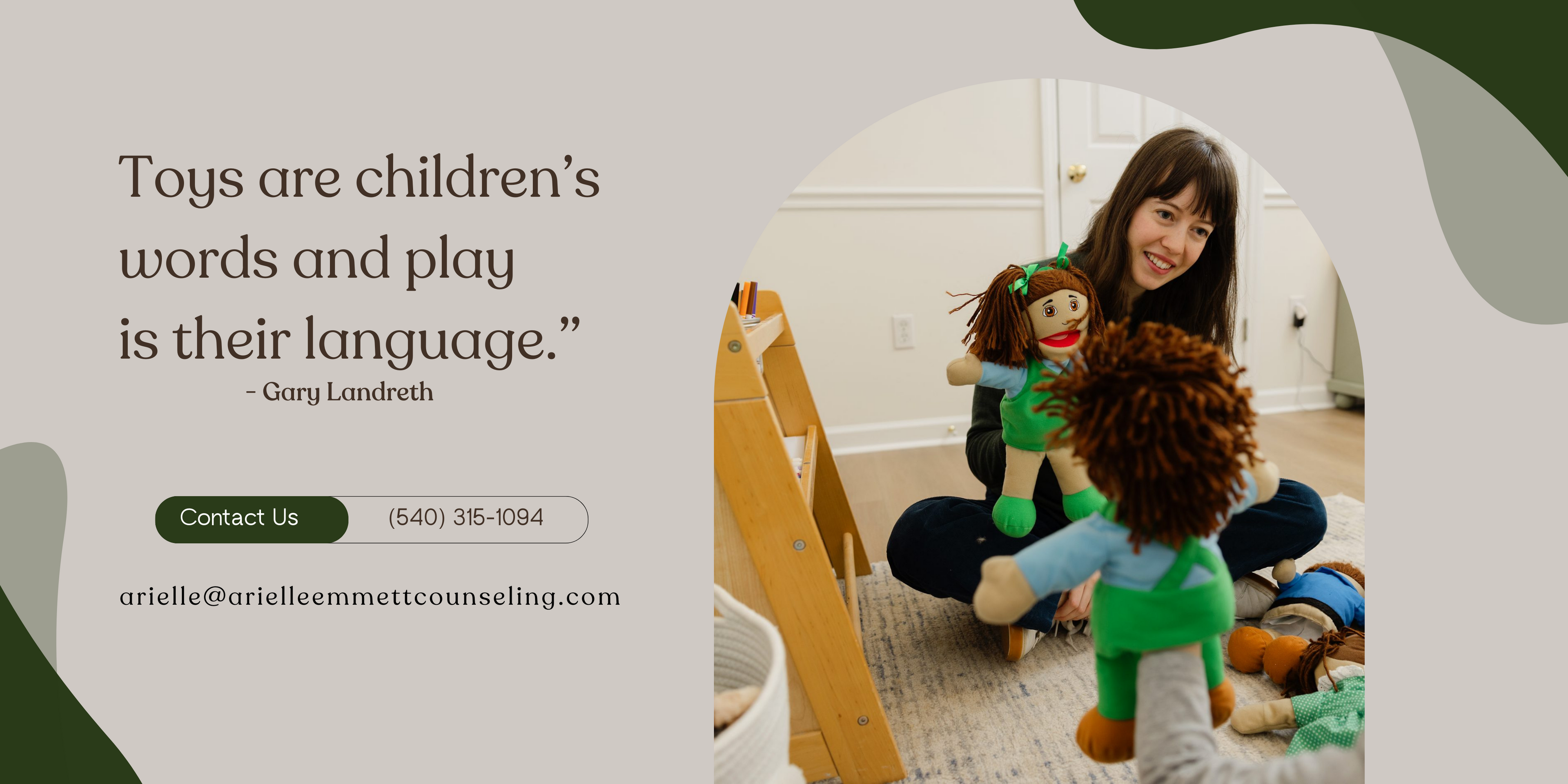
As adults, we value therapy for ourselves. Our children benefit from the same support to work through their challenges.

I'm Arielle
As a therapist with both lived experience and clinical skills, I help kids and parents using a Person-Centered approach. I utilize Child-Centered Play Therapy, Principles of Interpersonal Neurobiology, Attachment Theory, Motivational Interviewing, and ACT.
Frequently Asked Questions
What is Play Therapy?
Play therapy is a way of working with children in which they express themselves through play and toys.
When I facilitate play therapy, I provide an environment where children experience safety and learn to feel self-confident, transform their difficult behaviors, and tap into their potential.
Children learn emotional regulation and self-awareness. Play therapy involves modeling helpful behaviors and self-soothing skills.
I use primarily Child-Centered Play Therapy, which is a non-directive approach. This approach focuses on the relationship between therapist and child, and empowers the child to explore the issues and concerns that are important to them.
Play Therapy, like all therapy, is not a quick fix. I work from the strengths-based perspective that your child is not broken, and doesn’t need to change who they are - they just need support in learning more skills and identifying their natural strengths and abilities for problem solving.
How can therapy help my child?
No matter your child’s age, everyone can benefit from having a supportive place to process stress, explore the things that matter to them, and learn skills to cope with the difficult parts of life.
For younger kids, this might mean learning social and emotional skills or dealing with difficult feelings. For older kids, therapy can help them address developmental concerns; children ages 7-14 are often working through issues regarding self-esteem,self-worth, and social connectness.
Therapy is the perfect place to work through these concerns with a professional who can help them learn healthy coping skills and life long habits that support their mental health.
How will I be involved?
Parents are an integral part of the therapeutic process.
During most sessions, it is typically just the therapist and child. For younger children, parents may be invited into the room for family sessions.
I will ask you to support your child in practicing skills at home, and work on specific emotional tasks with your child.
Depending on the age of your child, I may schedule parent sessions frequently to check in and discuss how things are going at home, school, and in sessions. For older kids, some confidentiality is an important part of the therapeutic process- it is what allows kids to share difficult or painful emotions. However, parents have the right to their child’s health information and I maintain frequent contact with you about your child’s progress.
When do you offer sessions?
I provide therapy sessions during normal business hours.
I provide a limited number of before and after school sessions. These typically are fully booked and there is no guarantee of getting a session during these times. I can provide excuse notes for school, and I have found schools are happy to support students in getting the mental health care they need.
How often are sessions?
For all children, I recommend weekly sessions to start, and then moving to biweekly if needed.
I recognize that there are many factors involved when scheduling therapy, including finances, schedule, work, etc.
I have found that therapy works best when done on a weekly or biweekly schedule and that children get the most therapeutic benefit from services in this way.
How long is a session?
Sessions are typically 50 minutes.
Some sessions are shorter depending on the developmental level of your child.
For example, a 30 minute session is often more appropriate for a child under 5.
How long does therapy take?
Therapy can be short term or long term, depending on the specific needs of your child.
In general, most children attend therapy for about 6 months. If your child is working with more acute distress or long term concerns, it is normal to spend longer in therapy.
